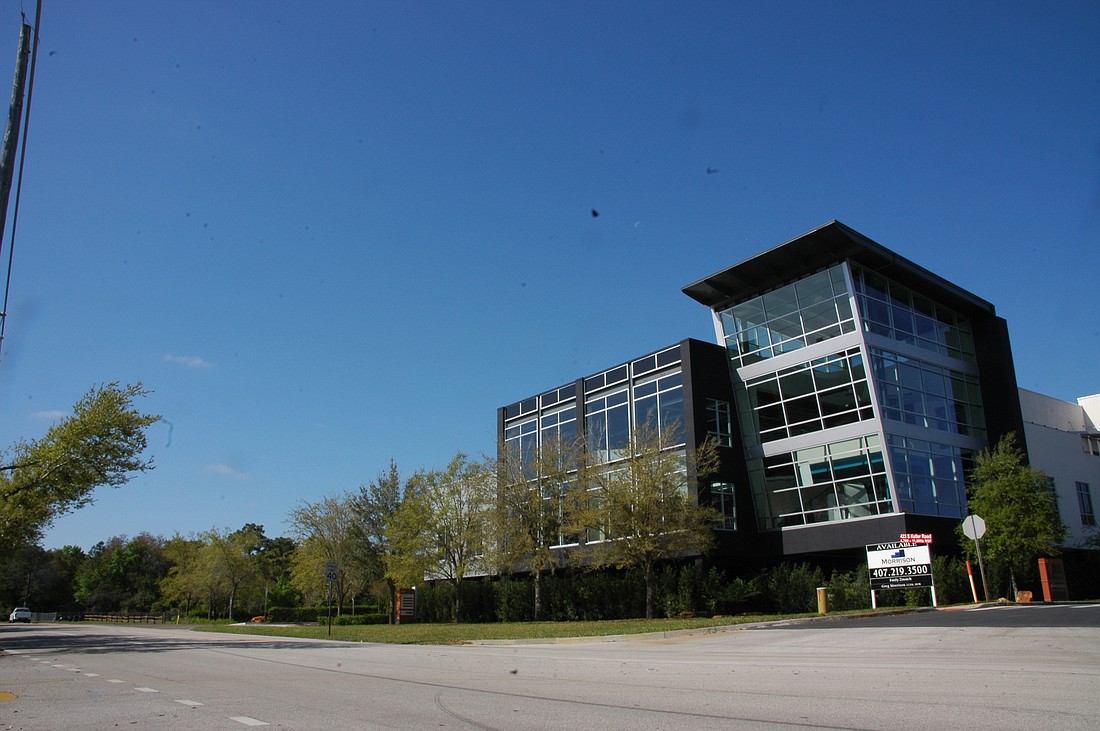- April 19, 2024
-
-
Loading

Loading

It's Monday at 1:15 p.m. Less than a dozen cars are in the parking lot and only three people are eating lunch inside Café Marty.
The small strip mall off Keller Road in the Maitland Center, the commercial heart of Maitland, is on the verge of a ghost town. There's Café Marty, Hollie's Nail and Spa and Keller Cleaners open for business.
Beyond that, there's an empty Quizno's and half a dozen empty storefronts, all with signs advertising their availability for rent. It's a microcosm of Maitland Center's larger problem: Vacancy rates are edging more than 17 percent in the commercial park, higher than any other place in Maitland.
"Absolutely, it absolutely does concern me," says Marty Krever, the owner of Café Marty, behind the register. "We need to get these buildings full and get people working. On a day-to-day basis, I rely on these businesses for my business. If they're not filling up, if the economy doesn't turn around, people are brown bagging it and not going out to lunch as much as they used to."
During the last quarter, 15.6 percent of Maitland's commercial properties sat empty citywide. But Maitland Center, the sprawling, 6 million-square-foot office park in the west end of the city, edged higher at 17.3 percent, according to Maitland commercial real estate firm NAI Realvest.
It's disconcerting to some at the city level because Maitland's tax base is two-thirds commercial to one-third residential, and Maitland Center is the biggest part of that commercial base. It's led some to speculate that, if occupancy rates continue to decline, the city could face huge shortfalls in upcoming budgets.
And declined revenues, in some places, have translated to higher tax rates to balance budgets.
"I would never consider an increase in taxes on residents," said Maitland Mayor Doug Kinson. "You can quote me on that. And my parents always told me, never is a really long time."
Maitland's mayor has pledged that budget shortfalls won't result in more taxes on residents. That, however, leaves few alternatives.
As the commercial crisis continues, Maitland will have to get creative to get by without increasing taxes. That could mean budget cuts, layoffs and the like.
"I think it's going to be a concern over the next few years, frankly," Kinson said. "We can't afford to have a deep drop in assessments in Maitland Center because there's literally no other way we can make up those revenues."
Paul Partyka is a managing partner at NAI Realvest, located in the Maitland Center. While Maitland Center is running the highest vacancy rates in the city, Partyka has seen worse.
Longwood, for example, is pushing 20 percent vacant on the commercial side, and Orlando Central Park is at 21 percent. The best area around, along University Boulevard, is tracking 10 percent unoccupied.
That may seem low compared to the area, but even 10 percent unoccupied is high.
"There isn't a good area," Partyka said. "When I say good, it's better than some of the others, but relatively speaking, these are all-time high figures."
That's led to some landlords leasing space at 50 percent of what it went for in peak times. All commercial properties have a break-even point where, if occupancy dips below it, landlords are no longer able to pay operating costs and fixed costs — such as bank loans — from the money coming in.
But there's another tipping point. To keep the businesses in a center vibrant, a commercial property can't be a dark space with empty storefronts.
Once that happens, the vibrant surviving businesses will start to struggle as well. And that's what's led to landlords offering the huge breaks.
"At least some of the dark spaces are being taken up," Partyka said. "You don't want a dark center. What people have to understand is it's a tenant's market right now."
The commercial market lags behind the residential market, and as vacancy rates rise, more and more landlords won't be able to pay their bank loans.
In 2009, more than 120 banks closed nationwide, according to the Federal Deposit Insurance Corporation, and in 2010, 40 banks have already closed their doors. Partyka said the estimates between 200 and 400 banks will close this year alone.
And economists are saying the worst is yet to come.
"This particular recession, there was no escaping the impact," said Sean Snaith, a University of Central Florida economist. "I think everyone's getting hit in Florida because of the recession and the nature of the housing crisis and the credit crunch. I think it's very difficult to avoid a pretty powerful impact on local government finance."